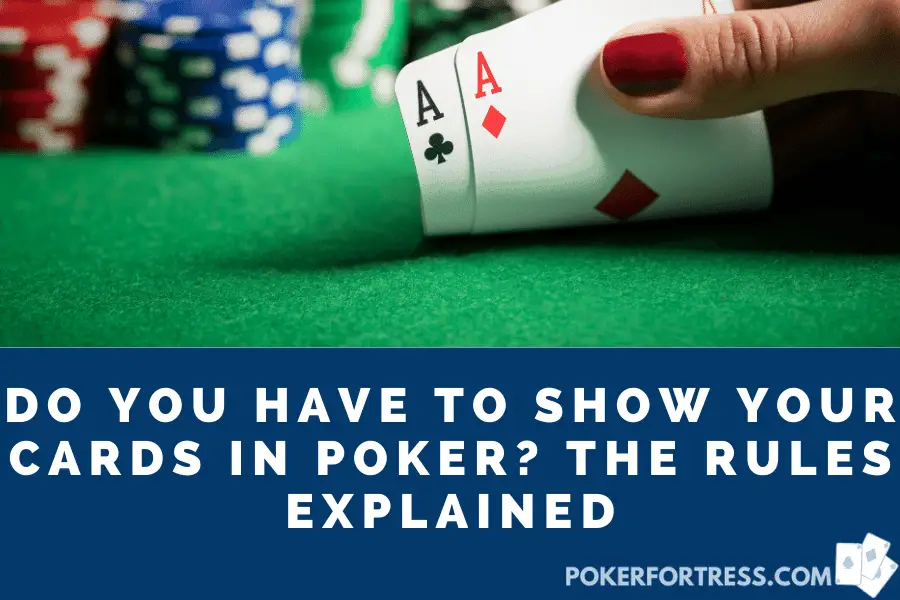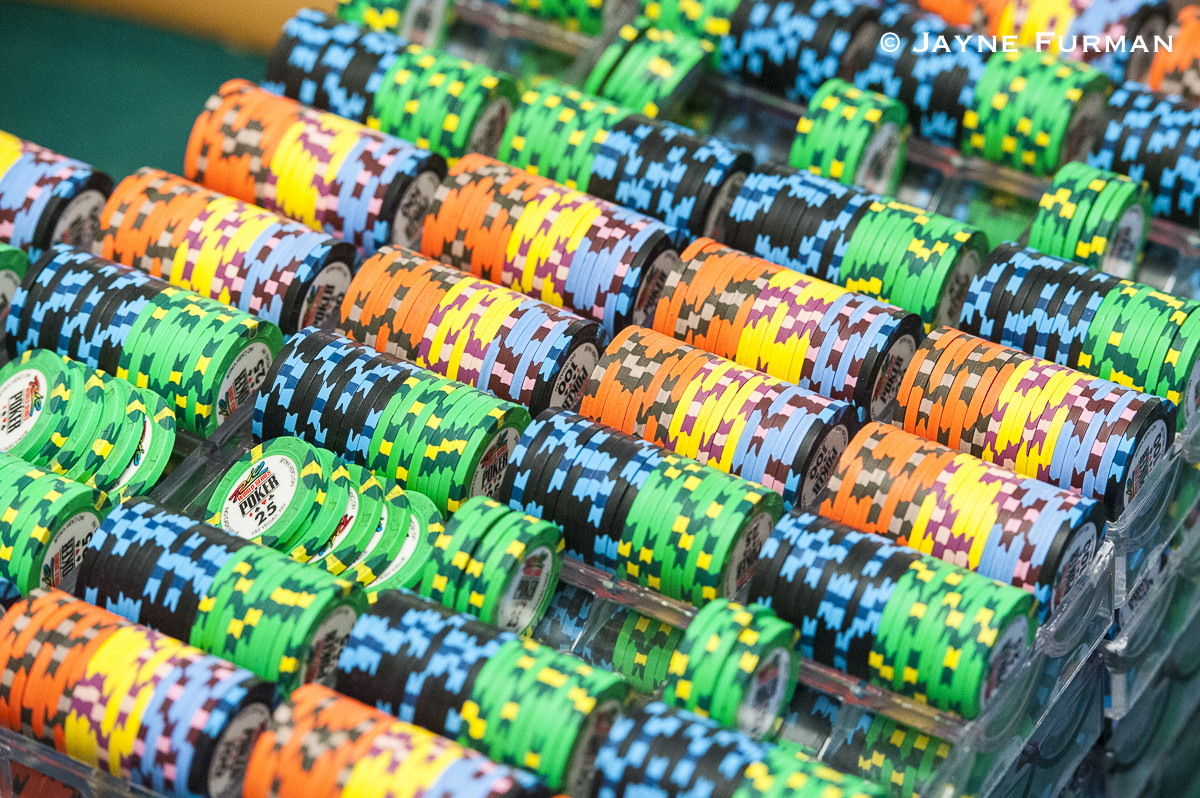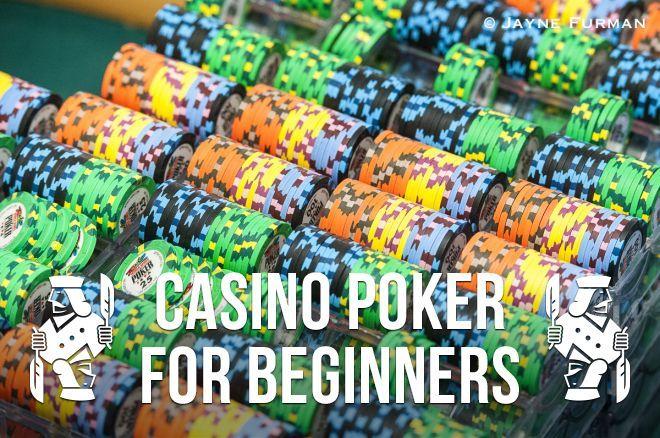Casino Poker Etiquette
May 29, 2018 Poker etiquette refers to how players should behave themselves while at the poker table. It involves an unwritten set of guidelines to follow that helps promote good sportsmanship, the speed of play, and a healthy atmosphere for the game. Overall, the topic of poker etiquette is very comprehensive, and it includes a vast array of DOs and DON’Ts. Avoid the Trap of Casino Pit Games. This needs a section of its own. You are a poker player and poker players are above playing -EV games. So don't waste your time or money! You can stick around the poker room and watch TV or read some poker magazines to kill the time. Whatever you do, don't put your buy-in down on one hand of blackjack!
Poker is viewed by many, first and foremost, as a form of pure entertainment. There are some players that truly only care about how much money they can win, which is fine of course, but there are also a lot of players that are primarily interested in having fun. These players would obviously love to win some money if they could, but they don’t mind losing providing they are having an enjoyable experience.
This is one reason why it’s so important to act properly and be respectful while playing poker. To some extent, every player has a responsibility to ensure that other players have a positive experience. Knowing the rules of how to play is simply not enough, as you need to know the rules on how to behave too.
There’s a great deal of etiquette involved in poker. There are some unwritten rules which dictate what you should and shouldn’t do and breaking these will likely alienate your fellow players. You should be aware of these, as you don’t want to upset your opponents and ruin their overall gaming experience. There are several formal rules too, which you need to abide by in order to avoid a penalty or being asked to leave a game altogether.
Below we list and explain our top five rules for behaving “correctly” at the poker table, along with our top five taboos that you should avoid. In addition to that, we also focus in on some extra etiquette that’s worth mentioning.
Five Golden Rules To Follow
The following rules are what we consider to be the five golden rules of poker that you should always try to follow when playing it live. They aren’t in any particular order because they are all equally important, in our opinion.
1. Be Polite and Courteous
If you play live poker for long enough you’ll probably encounter plenty of players who don’t follow this rule. It’s a very easy one to stick to yourself and there’s really no excuse for not being polite and courteous to your fellow players or your dealers for that matter. You don’t have to overdo it and you can even stay quiet if you want to, but using good manners isn’t hard to do and it’ll create a more welcoming atmosphere at the table.
2. Keep Up With the Play
You have a responsibility to pay attention to what’s happening at the poker table while you’re playing and it’s especially important to know when it’s your turn to act. It certainly won’t take long for other players to get frustrated if they have to constantly remind you when to play. You should also ensure that you post your blinds and antes in a timely manner and that you avoid acting out of turn. Don’t take an excessive amount of time while making simple decisions and don’t keep players waiting while you order a drink or something to eat.
3. Make Your Actions Clear
Making your actions clear will not only make your life easier but your opponent’s life as well. Shoving a few chips into the pot and mumbling “call” or “raise” under your breath doesn’t give you an advantage and it’ll probably just annoy your opponents. It’s not hard to slide a neat stack of chips in front of you and declare your actions with clarity. This will avoid any confusion and it will help ensure that you don’t get accused of trying to gain an unfair advantage by misrepresenting the action you are taking.
4. If You Show One, Show All
If you win a hand without going to a showdown, you can choose to show the table your cards. What you cannot do, though, is show them to just one player. This potentially gives that player an unfair advantage, as they are then in possession of information that no-one else has access to. It may not be extremely helpful to them, but it’s the principle of the matter that’s the real concern. As the saying goes, “If you show one, you must show all.” The same rule applies if you decide to muck (throw away without showing) a losing hand after going to showdown.
5. Be Gracious in Defeat AND Victory
No one likes a poor loser or a poor winner, so you should always try to be gracious in both defeat and victory while at the poker table. There’s nothing wrong with showing a little bit of frustration following a particularly crushing defeat, but you won’t gain any respect by going on a massive rant every time you lose a hand.
Likewise, a small celebration after winning a big pot is perfectly acceptable. Celebrating too wildly is just going to agitate your opponents and gloating about how brilliantly you played a hand is equally annoying. If you want the respect of your opponents, then you should act with some degree of humility.
Top Five Poker Table Taboos
Poker etiquette isn’t just about what you should do, but it’s also about what you should NOT do. The following points are the top five taboos that you should avoid at the poker table, and again these are in no particular order.
1. Revealing Your Cards During a Hand
Revealing your cards during a hand, regardless of whether you are still active or not, is very poor poker etiquette. It gives away information to the table that may provide an advantage to one player over another. For example, if one player is on a draw and hoping for certain cards to come and you reveal that you had one or more of those cards, this could change the way they play the hand, which ultimately is an unfair advantage.
Please keep in mind that there’s more than one way to reveal your cards to the table. It’s easy to avoid telling everyone what you have, but you need to be careful not to reveal your cards accidentally too. Carelessly throwing your cards away when folding, for example, can easily result in exposing them. Your reaction to seeing a flop after folding your cards can also give away unplanned information. If you exclaim in frustration that you would have made a great hand, then players may be able to determine what exactly was in your hand to some degree of certainty.
2. Talking About a Hand You Are Not Involved In
Giving a running commentary during a hand that you aren’t involved in definitely goes against poker etiquette. No one wants to hear your views about what each player may or may not have, what they should do next, or what you think is going to happen. It can be annoying to the players that are involved in the hand, as they probably just want to concentrate. It could also be constituted as giving advice to a player, which is prohibited in most poker rooms.
3. Criticizing Your Opponents
It’s not your place to criticize the way any of your opponents have played. Even if they have made a huge mistake, or you are just trying to offer constructive feedback, it’s simply not the way to behave at a poker table. Everyone has the right to play how they want, within the rules of course, and it’s not your responsibility to point out where they might be going wrong. In any case, why would you want to help your opponents improve their game? You want them to make mistakes, as that ultimately improves your chances of beating them, so please keep that in mind.
4. Blaming or Berating the Dealer
Remember that Poker dealers are just there to do their job and they have no control over what cards are dealt. Verbally attacking a dealer because you’ve suffered a bad beat or are getting a poor run of cards is never acceptable. You are practically guaranteed to get some bad luck from time to time. It’s simply the nature of the game and it’s your responsibility to learn how to deal with the frustration and stop yourself from taking it out on the dealer.
It’s also worth pointing out that this rule is applicable even if a dealer makes a mistake. Dealers are human after all, and mistakes do happen. There’s no excuse for berating a dealer, even if their mistake might have cost you money.
5. Slowrolling
The term slow rolling can be used to describe a few different circumstances, but it would generally apply when a player knows he has the best hand at showdown and takes a long time to turn over his cards in order to build up suspense. It could also apply when a player takes a long time to call an all in bet, despite knowing that they have the best hand at the table.
Many poker players consider slow rolling to be one of the worst breaches of etiquette. It serves no real purpose other than trying to wind up other opponents and rub salt in their wounds after you won a big pot. While some players will slow roll precisely to put down their opponents, it’s really not a move that we recommend making.
More Poker Etiquette
The points discussed above are the most important to be aware of when playing live poker, in our opinion at least. There are several additional rules that others may think are just as important, or maybe even more important, so please try to follow the ones below as well.
Don’t splash the pot
If you follow our golden rule #3, then you won’t do this anyway, but it’s a good idea to be aware of what the term means and why you shouldn’t do it. Splashing the pot is basically throwing your chips into the pot when making a bet, call, or raise. This is considered bad etiquette as it makes it extremely difficult to see exactly how many chips you are betting.
Don’t make string bets
A string bet is when you don’t make your bet in a continuous motion (i.e. you put a few chips in front of you, then a few more, then a few more) having not announced the total amount of your bet out loud. This is frowned upon and is technically against the rules, as it not only slows down the game but it can also be used to gain an advantage over your opponents. String betting can potentially allow you to gauge an opponent’s reaction to the size of your bet, and then decide whether or not to increase it based on their reaction.

String betting is a very common and often times an unintentional mistake, that’s typically made by inexperienced players. It can be used by players for tactical reasons but this isn’t usually the case. You don’t want to be accused of attempting to cheat, so you really should try hard to avoid making string bets. Again, this is relatively easy to do if you simply follow our golden rule #3.
Be considerate to others at the table
When playing live poker it’s possible that you could spend several hours sitting next to the same players. Although you obviously want to beat your opponents, you don’t want to ruin the whole experience for them either. Being considerate might seem like common sense, but there may be a few things that you haven’t considered in the list below.
- If smoking is permitted, it’s still courteous to ask neighboring players if they would object to you having a cigarette.
- Some basic personal hygiene is also a must; sitting next to a player who doesn’t smell very pleasant could negatively affect a player’s experience.
- Many people are offended by swearing, so you should try to keep the profanity down to an absolute minimum.
- There’s nothing wrong with having a drink when playing, but moderation is a good idea. A player who has had one too many drinks can easily ruin a game for everyone else. Besides, you’re unlikely to play very well if you are drunk or even tipsy for that matter.
Keep your cards visible when you’re in a hand

Keeping your cards visible when you’re active in a hand might not seem like a big deal, but it’s actually very important. If you have your cards hidden away behind your chip stack or underneath your hands, then many players will assume that you are no longer in the hand. This could potentially lead to someone acting out of turn through no real fault of their own.
When we say that your cards should be visible, we obviously don’t mean expose them face up. We just mean that they should be placed in front of you in a way that everyone at the table can see that you are still active in a hand.

Tipping the Dealers in Poker Games
We’ll finish with this point because it’s somewhat controversial. It could actually be argued that it has nothing to do with poker table etiquette at all, as it doesn’t affect your fellow players and there are certainly no specific rules relating to tipping the dealers. We feel it’s worth mentioning though, because it’s an issue that comes up as some pokers player don’t really know how to approach this situation.
There is no right or wrong action to take here. You are certainly not obliged to tip a dealer at any point and a lot of poker players steadfastly refuse to tip because they are already paying rake to the casino. It’s worth noting, however, that many dealers around the world aren’t paid very well and some even rely on tips to make a living. This doesn’t have to affect your thinking of course and the decision to tip or not is entirely up to you regardless of what a dealer earns.
With all of that being said, we are advocates of tipping the dealers. It doesn’t have to be a huge amount and you definitely don’t have to tip every time you win a pot, but we do believe it’s reasonable to offer at least one tip at the end of your playing session.
We would also advise that you base the size of your tip more on how the dealer performed and less on how much you won or lost during your session. A dealer who has dealt quickly and efficiently, with a friendly and pleasant manner deserves a larger tip than a dealer who continuously made mistakes and wasn’t particularly friendly.
Fundamentals of Poker - General GuidelinesMason MalmuthTwo Plus Two Magazine, Vol. 15, No. 11- General Guidelines
- Seven Card Stud
- Limit Texas Hold'em
Although poker is a pleasurable pastime, it’s enjoyable only when the game runs smoothly and quickly. Most of the responsibility for ensuring this rests with the house dealer, but players can do their part to keep the game moving in an orderly fashion. So you will know what is expected of you at the poker table, we are providing the following “rules” of poker etiquette.
Act in turn.
In poker, the action proceeds clockwise around the table, one player at a time. Acting out of turn not only shows a basic disregard of propriety, but also may give a player an unfair advantage over his remaining opponents. As an example, discarding your hand before the action gets to you may tell a player who should have acted ahead of you that it’s now easier for him to get away with a bluff. This obviously is not fair to those players who already have chosen not to bet.
Don’t throw your chips into the pot.
Throwing your chips directly into the pot, also known as “splashing the pot,” makes it difficult for the dealer and other players to determine whether you have bet the correct amount. In fact, when a player splashes the pot, it sometimes may be necessary for the dealer to interrupt play and count down the pot to make sure it’s correct. The proper way to make your bet is to place it directly in front of you on the table. The dealer will inspect your bet for accuracy and then will add it to the other chips in the center of the table.
Avoid making a “string bet” or “string raise.”
When you bet or raise, you should place the proper amount of chips in the pot at one time. A string bet/raise is an illegal play and occurs when a player places less than the full raise in the pot and, without verbally announcing a raise, returns to his stack to get more chips. This play is prohibited, as an unscrupulous player can use it to his advantage. As a precaution, always say, “Raise,” when you intend to raise.
Make decisions in a timely manner.
Most starting hands in poker are thrown away, which means that a great deal of your time is spent watching, not playing. Thus you want your opponents to play as fast as possible, and you should do the same. This doesn’t mean that when you’re faced with a tough decision, you can’t take some time to figure it out. In fact, if you need a moment, say, “Time, please.” But whenever possible, act on your hand quickly.
Keep your cards on the table.
Most cardrooms prohibit you from taking your cards off the table. However, it’s important to keep your cards in front of you for two additional reasons. First, when you pick up your hand, it may be seen by a player sitting next to you, which gives him an unfair advantage. Second, the dealer usually looks down and in front of you. If he doesn’t see your hand, he may deal your next card to someone else on a later round, causing confusion.
Turn all of your cards face up at the showdown.
Casino Poker Online
This is necessary so the dealer can read your hand to determine whether you’ve won the pot. In addition, the other players will see that you have a legitimate hand made up of seven different cards. If you turn up only the five cards that you think make the best hand, not only will the other players object, but also you may have missed seeing the winning hand. Needless to say, if no one calls your final bet or raise, it’s not necessary to show your cards.
Don’t discuss your hand during play.
Providing information about your hand to other players, even if you have thrown your cards away, may give someone an unfair advantage. For example, if you abandon your hand and then remark, “I just threw away an ace and a king,” a player holding one of these cards now may choose not to enter the pot with a hand he otherwise would have played.
The games are played “table stakes.”
This means that only the money and chips you have in front of you on the table are in play. If you run out of money during the play of a hand, you are said to be “all in” and can contest only the part of the pot that your bets cover. You are not allowed to reach into your pocket and produce more money during that hand. (Notice that you will not lose the pot because someone has bet more money than you currently have on the table.) In addition, you are not permitted to remove money from the table until you are ready to leave the game.
Tipping is appreciated.
 Though not obligatory, it’s customary to give the dealer a tip when you win an average-sized pot. Tipping is an accepted way of thanking the dealer for performing his job in a professional and courteous manner.
Though not obligatory, it’s customary to give the dealer a tip when you win an average-sized pot. Tipping is an accepted way of thanking the dealer for performing his job in a professional and courteous manner. Poker Strategy and Other Topics - November 2019
by Carlos Welch
by Robert Samuels
by Kevin Haney
by Kevin Haney
by Ben Saxton
by Bryan Clark
by Felipe Garcia, CFA and Aaron Byrd, CFA
Casino Poker Games Online

Casino Poker Tips
by Nick Willett
Casino Poker Etiquette Game
by Mason Malmuth